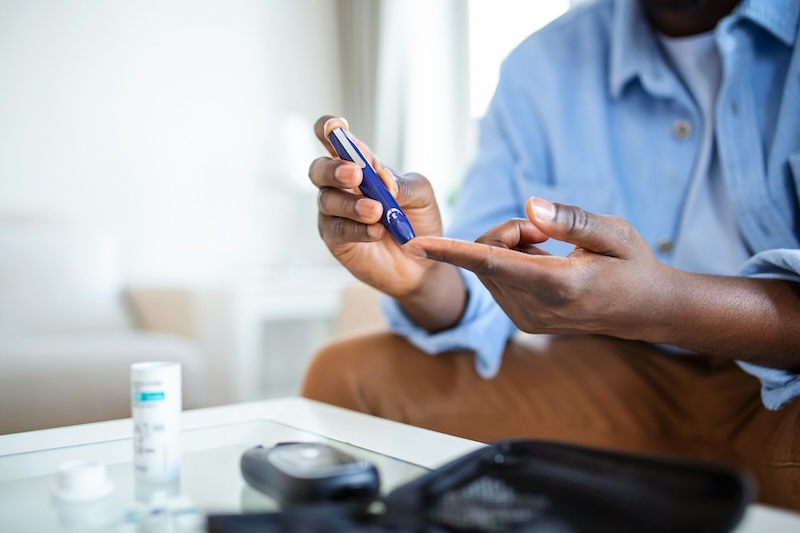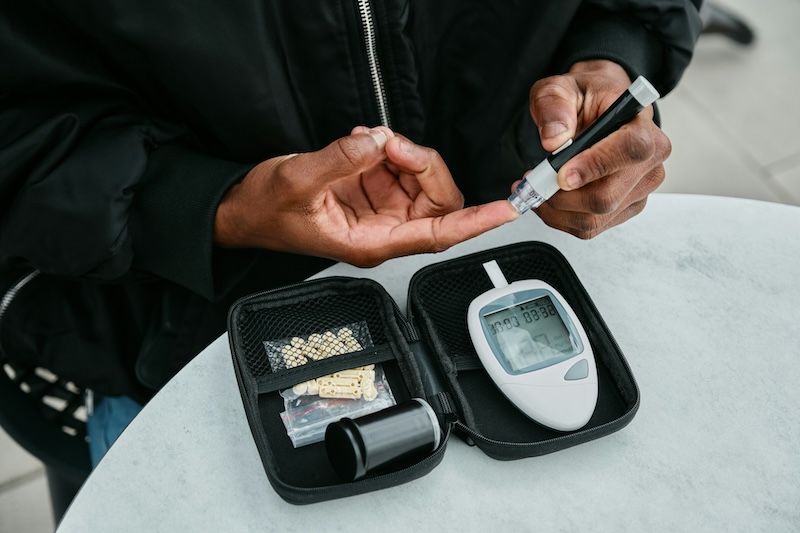High blood sugar, also known as hyperglycemia, can be a serious concern for people with type 2 diabetes or prediabetes. It happens when the body...
Vous n'êtes pas connecté
Rubriques :
 - NEWSDAY.CO.TT - A la Une - 17/09/2024 07:45
- NEWSDAY.CO.TT - A la Une - 17/09/2024 07:45
Diabetes signs you should not ignore
Maxwell Ademeyi DIABETES can manifest in various ways, especially at night. It is crucial to recognise these night-time signs to prevent further damage to your organs, particularly the kidneys. Frequent nocturia One of the most common night-time signs of diabetes is frequent urination, known as nocturia. This occurs when there is too much sugar in the blood, and the kidneys filter it out, leading to dehydration. The body naturally tries to eliminate this excess sugar, which is toxic, and in doing so also loses fluids, making you dehydrated. Excessive thirst Diabetics often experience excessive thirst due to dehydration. The body retains sodium when blood sugar levels are high, leading to a feedback loop where you drink more water, urinate excessively, and become dehydrated again. This cycle also results in the loss of essential minerals like potassium, magnesium and calcium. Restless leg syndrome Restless leg syndrome is another symptom, often caused by a deficiency in vitamin B1 and magnesium. Consuming high amounts of refined carbs or sugars can lead to these deficiencies, causing lactic acid build-up in the muscles, leading to fatigue and restlessness. Peripheral neuropathy Peripheral neuropathy involves pain, numbness, or burning sensations in the lower feet. This condition worsens at night due to increased blood pooling and pressure on damaged nerve endings. A combination of B vitamins and alpha-lipoic acid can help alleviate these symptoms. Leg cramps Leg cramps are related to magnesium deficiency, which is common in diabetics. When magnesium levels are low, calcium builds up inside the cells, leading to muscle contraction rather than relaxation. Magnesium glycinate is recommended to help with both cramps and sleep. Excessive sweating Excessive sweating at night, particularly in the face, neck, or upper body, can be a sign of diabetes. This is due to the body being in a state of fight or flight mode, activating adrenaline and leading to increased sweating. Sleep apnea Sleep apnea is a condition where there is not enough oxygen due to air obstruction in the throat or sinuses. This is often linked to insulin resistance, where the body tries to protect itself from too much glucose, leading to weight gain. Hypoglycaemia Low blood sugar, or hypoglycaemia, can cause you to wake up in the middle of the night with stress hormone activation. This is due to high insulin levels trying to push blood sugars down. Delayed sleep High sugar levels can delay the release of melatonin, making it difficult to fall asleep. Adopting a low-carb diet can help correct this issue. Gastric reflux Gastric reflux or GERD can be exacerbated by blood sugar issues affecting the autonomic nervous system, which controls the valves in the body, including the stomach valve. A low-carb ketogenic diet and eating earlier in the day can help manage this symptom. Nightmares and vivid dreams Nightmares and vivid dreams can be related to neurotransmitter problems, often due to a deficiency in vitamin B1. Consuming too many carbs or being diabetic can deplete B1 levels. High blood pressure Non-dipping blood pressure, where blood pressure does not decrease at night, is common in diabetics. This can lead to feeling awake and alert during the night. Palpitations Palpitations can occur due to a lack of electrolytes, particularly potassium and magnesium. Using a good electrolyte powder can help alleviate this symptom. Teeth grinding Teeth grinding is a result of the activation of the fight or flight mechanism, leading to stress and jaw muscle activation during sleep. Morning headaches Morning headaches are often due to dehydration and a lack of electrolytes. Drinking water and replenishing electrolytes can help prevent these headaches. Understanding these night-time signs of diabetes is crucial for early detection and management. By recognising these symptoms and making appropriate lifestyle changes, such as adopting a low-carb diet and managing blood sugar levels, you can significantly improve your health and prevent further complications. It is, however, important to check with your healthcare provider if and when you notice these signs and symptoms so that relevant tests and investigations can be carried out and an appropriate treatment plan can be instituted to manage the condition. Contact Dr Maxwell on 3631807 or 7575411 The post Diabetes signs you should not ignore appeared first on Trinidad and Tobago Newsday.
Articles similaires
Foods to avoid if you have type 2 diabetes
Type 2 diabetes is a condition where the body has trouble using insulin properly, which causes blood sugar levels to rise. One of the most important...
Foods to avoid if you have type 2 diabetes
Type 2 diabetes is a condition where the body has trouble using insulin properly, which causes blood sugar levels to rise. One of the most important...
Early warning signs of type 2 diabetes complications you shouldn’t ignore
Type 2 diabetes is a long-term condition that affects how your body uses sugar (glucose) for energy. Over time, high blood sugar levels can cause...
Early warning signs of type 2 diabetes complications you shouldn’t ignore
Type 2 diabetes is a long-term condition that affects how your body uses sugar (glucose) for energy. Over time, high blood sugar levels can cause...
Why type 2 diabetes can cause nerve pain
Type 2 diabetes is a long-term condition where the body can’t use insulin properly, causing blood sugar levels to stay too high. Over time, high...
Why type 2 diabetes can cause nerve pain
Type 2 diabetes is a long-term condition where the body can’t use insulin properly, causing blood sugar levels to stay too high. Over time, high...
5 common signs of high blood sugar that are often ignored
Maintaining healthy blood sugar levels is vital for overall well-being, as elevated levels can indicate diabetes or prediabetes. Over time, unchecked...
Type 2 diabetes: is it in your genes or your habits?
Type 2 diabetes is one of the most common long-term health conditions in the world today. It happens when the body doesn’t use insulin properly or...
How electrolytes affect your blood pressure health
High blood pressure, or hypertension, happens when the force of blood against the walls of your arteries stays too high for too long. This can put...
Les derniers communiqués
-
Aucun élément







